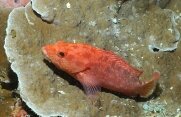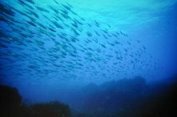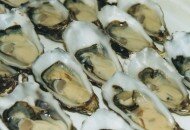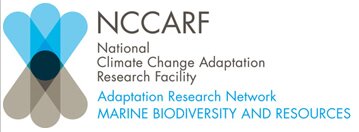|
Page 1 of 3 pages 1 2 3 > Integration Theme

Mission
To enhance the adaptive capacity of Australia’s marine biodiversity and resources to climate change risks through the effective integration of our knowledge of conditions, responses and interactions involving marine biodiversity, living marine resources, socioeconomic issues, policy, management and governance.
Read More>
Biodiversity and Resources Theme

Mission
The overarching aim of the Biodiversity and Resources theme within the broader network is to better understand the adaptive capacity of marine biodiversity at genetic, species and ecosystem levels in the overall context of vulnerability to climate change risks. This information is vital to enable us to usefully inform policy and management decision-making for the long-term conservation of Australia’s marine assets and to enhance the adaptive capacity of Australia’s marine based industries. There is also a clear need to develop adaptation strategies for industry stakeholders that optimise the socio-economic goods and services provided by Australia’s marine resources. Read More>
Communities Theme

Mission
To better understand and address the barriers and opportunities to adapting to climate change among marine conservationists, resource users and industries.
Adaptation of marine-dependent industries and communities to climate change occurs through social processes (e.g. the most efficient adaptation strategy may be ineffective if there are counter values and cultural norms that preclude its implementation). Similarly, assessing the vulnerability of marine-dependent industries and communities to climate change requires understanding of both the sensitivity of those industries and communities to climatic changes, as well as their capacity to respond to those changes (adaptive capacity). Thus, the aim of the Communities Theme is to better understand and address the barriers and opportunities to adapting to climate change among conservationists, marine resource users and the industries which depend on them. Read More>
Policy Theme

Mission
To enhance the adaptive capacity of Australia’s marine biodiversity and resources to climate change risks through the development of flexible climate change adaptation policy, management and governance strategies.Adaptation to projected and unexpected changes in marine systems requires science, policy and practice to be well understood and connected. Connecting these domains means much more than ensuring policy-makers and practitioners have access to scientific information about potential direct and indirect impacts of climate change. It implies that the lines of communication between policy, practice and science are open, respectful and inclusive. These qualities form the foundations of the methodology currently being developed within the Policy Theme, to contribute to adaptation. Read More>
Markets Theme
 Mission Mission
To develop economic tools to assess the adaptive capacity and potential impacts of climate change risks and their roles in the overall vulnerability of marine resource harvesting so that appropriate management strategies can be developed to ensure economically resilient and sustainable fishing practices.
Read More>
Page 1 of 3 pages 1 2 3 >
|







 Mission
Mission